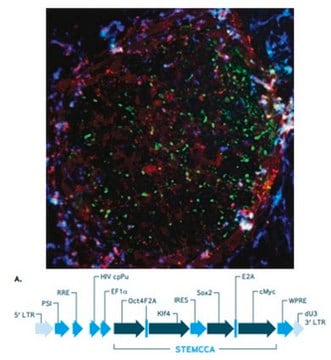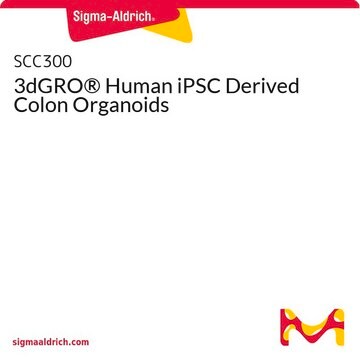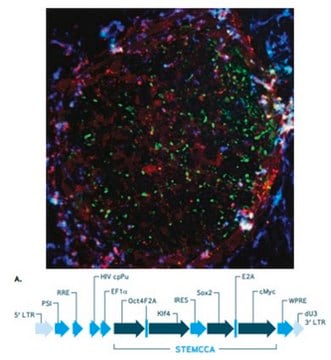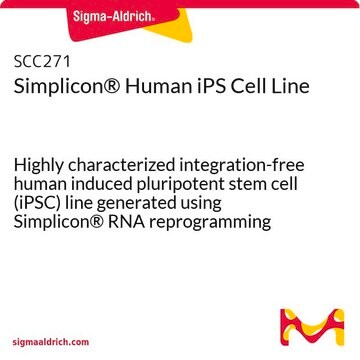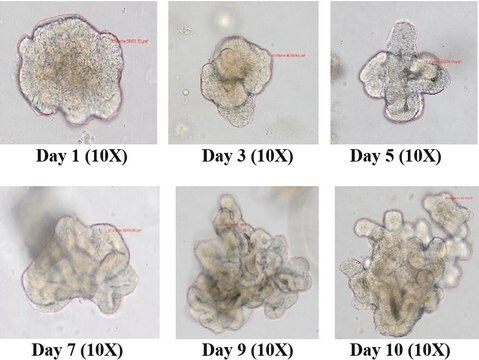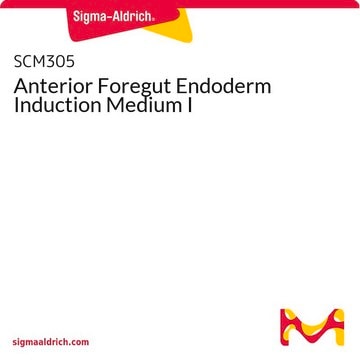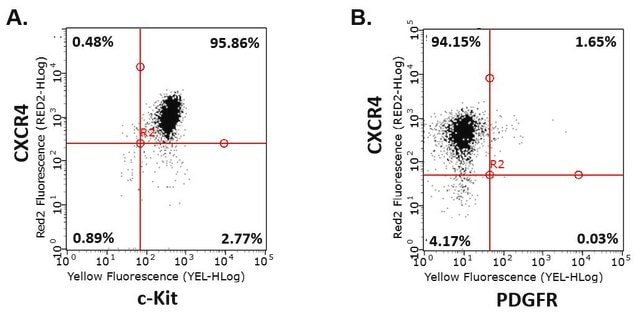SCR544
Human STEMCCA Constitutive Polycistronic (OKSM) Lentivirus Reprogramming Kit
The Human STEMCCA Constitutive Polycistronic Lentivirus Kit contains high titer polycistronic lentivirus & Polybrene transfection reagent that have been validated for the generation of human iPS cells from human foreskin fibroblasts.
About This Item
Produits recommandés
Niveau de qualité
Fabricant/nom de marque
STEMCCA
Technique(s)
cell culture | stem cell: suitable
Entrée
sample type induced pluripotent stem cell(s)
Conditions d'expédition
dry ice
Description générale
Composants
2. Polybrene Transfection Reagent: (Part number TR-1003-50UL) One (1) vial containing 50 µL of 10 mg/mL stock.
Qualité
Code de la classe de stockage
12 - Non Combustible Liquids
Point d'éclair (°F)
Not applicable
Point d'éclair (°C)
Not applicable
Certificats d'analyse (COA)
Recherchez un Certificats d'analyse (COA) en saisissant le numéro de lot du produit. Les numéros de lot figurent sur l'étiquette du produit après les mots "Lot" ou "Batch".
Déjà en possession de ce produit ?
Retrouvez la documentation relative aux produits que vous avez récemment achetés dans la Bibliothèque de documents.
Articles
Fibroblast growth factors (FGFs) regulate developmental pathways and mesoderm/ectoderm patterning in early embryonic development.
Fibroblast growth factors (FGFs) regulate developmental pathways and mesoderm/ectoderm patterning in early embryonic development.
Fibroblast growth factors (FGFs) regulate developmental pathways and mesoderm/ectoderm patterning in early embryonic development.
Fibroblast growth factors (FGFs) regulate developmental pathways and mesoderm/ectoderm patterning in early embryonic development.
Protocoles
Stem cell reprogramming protocols to generate human induced pluripotent stem cells (iPSCs) including viral and non-viral RNA based methods.
Notre équipe de scientifiques dispose d'une expérience dans tous les secteurs de la recherche, notamment en sciences de la vie, science des matériaux, synthèse chimique, chromatographie, analyse et dans de nombreux autres domaines..
Contacter notre Service technique